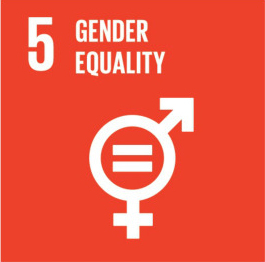“How do we know when the rule of law works? What do we mean by justice?” opened IDLO’s Director of Research and Learning, Ilaria Bottigliero, at the expert roundtable, Critical Reflections on the 2nd Generation of Rule of Law Reform. “For IDLO, it’s when women have better access to justice in Afghanistan. It’s when citizens in Uganda have access to the medicine they need. It’s when legislation we helped draft is fair and non-discriminatory.”
The meeting, co-organized by the Erasmus University, the International Institute of Social Studies and IDLO, under the umbrella of the INFAR research project (Integrating Normative and Functional Approaches to Rule of Law and Human Rights), convened leading academics, researchers and specialists to discuss emerging approaches to rule of law reform and explore the intersection of theory and practice.
“Our relationship with the rule of law is practical and real, not just theoretical”, Dr. Bottigliero continued.
Most rule of law reform strategies to date have focused on strengthening justice institutions, training legal professionals, and providing technical assistance. But these efforts have been heavily criticized within the sector for not adequately emphasizing access to justice, the political context in various country situations or other realities on the ground. IDLO’s Head of Research, Marco Lankhorst, noted that, “there has been a focus on generating knowledge, but translating that into programming remains a challenge”.
As a result, a second generation of rule of law reform has emerged, which looks beyond formal structures and shifts the focus to the end users of justice and to local ownership. This new approach encourages engagement with non-legal actors, including civil society, and seeks to complement rule of law knowledge with a grounded approach.
IDLO’s work is increasingly embracing this evolution, particularly embodied in the DREAMS program – an initiative aiming to hold service providers accountable in their delivery of HIV-related legal services to adolescent girls and young women in Tanzania and Uganda, working towards gender and health-related goals of the 2030 Agenda. The DREAMS program targets all drivers of injustice – social, economic and cultural – by using an innovative combination of legal and social approaches: legal empowerment strategies support the protection of rights, while social accountability strategies amplify the voice of the beneficiaries and encourage civic engagement.
“IDLO’s local partners are indispensable to the DREAM program’s development, implementation, success and sustainability,” affirmed Rea Chiongson, IDLO’s Senior Gender Advisor.
Such comprehensive, “second generation” efforts seek to simultaneously strengthen the capacities of justice sector institutions, while empowering justice seekers by raising legal awareness and strengthening capacities to claim their rights.
In response, Professor Makau Mutua of SUNY-Buffalo stressed the need to include both thinkers and doers in rule of law reform, “we cannot act without thinking, and we cannot think without acting.”
Further information on IDLO's DREAMS program here
|
Achieving the 2030 Agenda: |
|||||
|
Sustainable Development Goal 3: Ensure healthy lives and promote well-being for all at all ages. Learn more |
 |
Sustainable Development Goal 5: Achieve gender equality and empower all women and girls. Learn more |
Sustainable Development Goal 16: Promote peaceful and inclusive societies for sustainable development, provide access to justice for all and build effective, accountable and inclusive institutions at all levels. Learn more |
||

